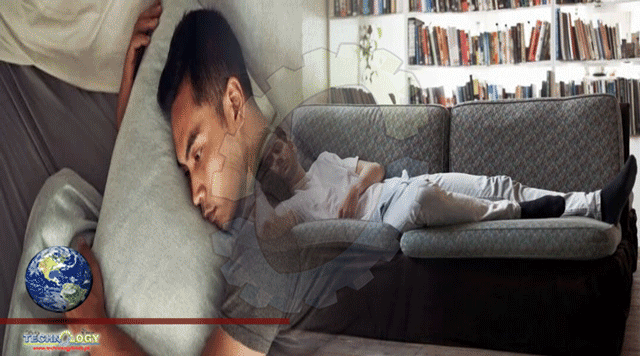SLEEP is an important part of the body’s process. It’s where it rests, heals, and recovers. Scientists have now discovered there could be 16 types of sleep.

Sleep plays a crucial role in how the body operates. However, while the world knows about sleep cycles and the body rhythm, less is known about types of sleep. A review of sleep data from over 100,000 Britons has found there could be 16 different types of sleep. The identification of these types could allow scientists to improve their diagnosis of insomnia or pre-insomnia.
The research in question is based on data from smart wristbands used by participants from UK’s Biobank.
As a result of the study, a “real-world sleep scape” has been mapped out showing how diverse sleep can be.
The clusters are split into five categories, from those who experience insomnia by waking up in the middle of the night to people who sleep all the way through the night.
The clusters in question are:
1. Insomnia with long sleep duration and mid-awake
2.
a. Irregular sleep schedule
b. Fragmented sleep with short sleep duration
3.
a. Insomnia with normal sleep duration
b. Insomnia with short sleep duration
4.
a. Longer 24-hour period sleep/wake cycle
b. Major
5. Sleep without day-time sleep window.
In the case clusters 3b and 4b, each of these are split into eight subcategories of fragmented sleep.
While the cluster system is complicated, in the future it will provide a useful clinical framework for scientists.
Insomnia can be a sign, for example, of poor cognitive function or insomnia marked by normal sleep duration is linked to an anxious-ruminative profile.
In order to conclude the existence of these links more research is needed; this is why this framework is required.
It could be caused by psychological, physical, or lifestyle causes.
With regard to the prevalence of each cause, the NHS said: “Psychological causes of tiredness are much more common than physical causes.
“Most psychological causes lead to poor sleep or insomnia, both of which cause daytime tiredness.”
Psychological causes include: stress, emotional shock, depression, and anxiety.
Poor sleep can also have physical causes.
Examples of physical causes are iron deficiency anaemia, an underactive thyroid, sleep apnoea, pregnancy, obesity, being underweight, cancer treatments, carbon monoxide poisoning or side effects of medicines and herbal remedies.
Lifestyle factors can also cause tiredness.
The NHS recommended: “If you have been feeling constantly tired for more than four weeks, it’s a good idea to see your GP so they can confirm or rule out a medical condition that could be causing your tiredness.”
Source: Express